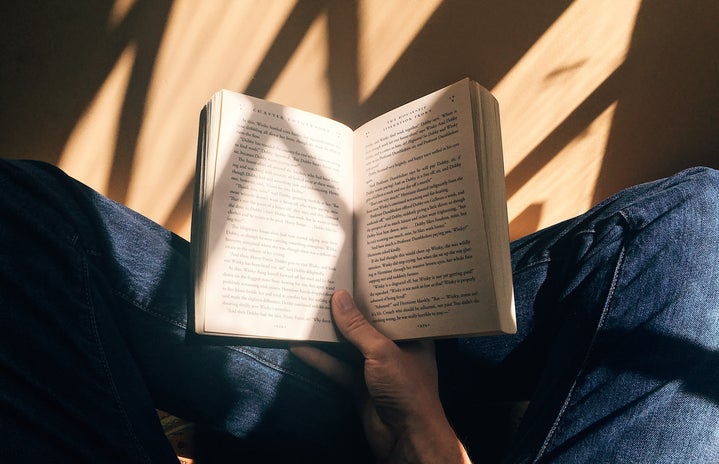In The Four Agreements: A Guide to Personal Freedom, a powerful yet concise personal development book, Don Miguel Ruiz sheds light on how to achieve self-actualisation and freedom. The book follows the idea that our actions are based upon agreements we have entrenched in our minds with ourselves and other people. Using ancient Toltec wisdom, the author illustrates the issues with self-limiting beliefs and negative agreements that arise through the process of domestication. He also shares valuable ideas on how to overcome this.
Don Miguel Ruiz states that life is a dream, whereby different societies are created with their own rules, beliefs, cultures and mores. According to the book, as children, we are introduced to the rules of our specific society by our parents and those who surround us. These rules make up our own personal belief systems and often determine what we consider right and wrong. And so, we form agreements based on this belief system that is inculcated by our parents. Ruiz refers to this as the domestication of humans. However, the issue that he focuses on is how these systems are often at the root of our suffering. For instance, we construct agreements in our minds that dictate what we can’t do, often punishing ourselves for ‘breaking’ an agreement. As a result, many of us might pretend to be a version of ourselves that we deem as socially acceptable or that correlates with our belief system, at the detriment of our personal freedom.
What I found particularly compelling was Ruiz’s commentary on our belief system, that he also refers to as our ‘book of law’. He claims that we all have an inner judge in our heads that criticises what we may do or not do, as well as a victim that makes us feel guilty or not worthy enough when we don’t respect what is in our ‘book of law’. As a result, we subject ourselves to immense scrutiny and self-criticism, punishing ourselves when we feel we haven’t reached our respective idealised versions of perfection. Ruiz argues that true happiness and personal freedom comes from dissecting and questioning our respective belief systems and what they are based on to recover our authentic selves. Through such dissection and questioning, we can relive our childhood bliss and ignorance of these systems, as long as we are willing to challenge our beliefs.
The first agreement (with ourselves) discussed in the book is to be impeccable with your word. In summary, this means that we should be more intentional with our words. For example, we shouldn’t use harmful words against ourselves, as it is a form of self-abuse and exacerbates feelings of anxiety, shame and fear. In fact, what stood out to me most was Ruiz stating that we should hold ourselves accountable from a place of love. Therefore, instead of using harsh words towards ourselves or other people, we should remember all that we may have overcome and what steps we can take to improve. Ruiz also advises that we try and avoid launching emotional poison at other people as this has a negative impact on them and ourselves.
The second agreement prompts us to not take anything personally. Ruiz reinforces the idea that how people act towards us is usually because of them not us. Interestingly, he says that taking everything personally is the most selfish thing a person could do, as one assumes that everything is about them. Rather, what dictates a person’s actions is usually based on their own beliefs and agreements. I thought this section was very interesting as it strengthens the idea that we are first and foremost responsible for our own actions and that we shouldn’t let what other people say or do heavily/negatively impact us.
The third agreement is not to make assumptions. The author specifically outlines the problem with overactive imaginations versus actual reality. He states that we should have the courage to express what we want or ask questions to avoid misunderstandings. What was pertinent to me in this section was how Ruiz argues that in any situation, we cannot assume a person knows how we feel. Be it with family, friends or a stranger, Ruiz says that it is essential to try and communicate. I think this lesson can be applied to our day-to-day lives as we can work on communicating better with those around us to set boundaries, make our intentions clear or further clarify something. As a serial overthinker, this really impacted my mindset, as I realised my brain tends to create false assumptions that lead to self-criticism and guilt. Therefore, adapting the way you think and not being afraid to communicate can help improve relationships and your understanding of the world.
Ruiz’ final agreement urges us to always do our best. His logic is that our inner judge cannot criticise us if we always do our best. He also reminds the reader that our best can fluctuate and over-pushing ourselves is not a sustainable practice. Personally, I found this to be an extremely important agreement. As humans, we have many goals and wishes consequently causing us to apply lots of pressure on ourselves. While this may be a good thing on occasion, it is important to also cut ourselves some slack if we are not able to perform to our highest abilities and remember that not every day has to be as productive as the one prior.
Thus, I absolutely recommend this book to anyone. It is a fairly straight to the point read that provides crucial shows us how we can improve the way we view ourselves and others. Ultimately, the book emphasises self-love, the power of forgiveness, effective communication and personal effort as the building blocks to achieving our most authentic selves.


